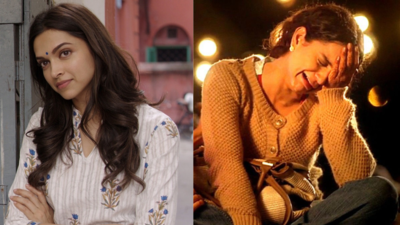ARTICLE AD BOX

Eldest daughter syndrome is a term used to describe a pattern of emotional and psychological pressure experienced by many firstborn girls in families. Often expected to be responsible, mature, and selfless from a young age, these daughters carry invisible burdens that go unnoticed by those around them.They are often expected to set an example, help raise their younger siblings, and even act as emotional support for their parents. While this role may appear admirable from the outside, it can leave deep wounds. Eldest daughters tend to sacrifice their own needs, often believing that love must be earned through responsibility, success, or selflessness.Characters like Rani from the Bollywood movie 'Queen' perfectly reflect this.
She lives her life according to rules and expectations, prioritising family and societal standards over her own dreams, until heartbreak forces her on a journey of self-discovery.
How it starts in childhood
The earliest signs of eldest daughter syndrome often begin in childhood, shaped by both subtle and overt family dynamics.
- Parental expectations: She’s expected to be the role model, and her mistakes are rarely treated with compassion.
- Caretaking responsibilities: Parents rely on her to help raise younger siblings or manage household duties.
- Emotional parentification: She becomes a confidant or emotional anchor for the parents, particularly in dysfunctional or stressful family environments.
- Conditional love: Praise and affection are given mainly when she’s helpful, responsible, or excels in school.
- This environment teaches her that her value lies in what she can do for others, not in who she is.
How does it show up in adulthood?
As these daughters grow up, the traits developed in childhood often follow them into adulthood and affect every area of their lives, especially relationships and career choices.
- Over-functioning in relationships: She takes on more than her share of emotional labour.
- Inability to ask for help: She sees vulnerability as weakness and prefers to suffer silently.
- Guilt for self-prioritisation: Choosing her own needs feels selfish or wrong.
- Attracting partners who expect her to give endlessly: Often, these relationships become one-sided.
Characters like Piku from the film 'Piku' illustrate this burden well, constantly prioritising her father’s needs over her own happiness or relationships.

The emotional toll and invisible wounds
The damage caused by eldest daughter syndrome isn’t always visible, but it runs deep. Many eldest daughters experience:
- People-pleasing tendencies
- Struggles with setting boundaries
- Fear of failure or being a burden
- Associating love with sacrifice
Fiona from the series 'Shameless' is a prime example. She steps up to raise her siblings after being abandoned by their parents, sacrificing her personal dreams for the sake of family survival.
She is seen as strong, but internally, she’s emotionally exhausted.
What happens in romantic relationships and marriage
Eldest daughters often repeat their caregiving roles in romantic relationships. They:
- Take on excessive responsibility in the relationship
- Struggle to express emotional needs
- Feel undeserving of care or affection
- Are drawn to “fixing” emotionally unavailable partners
In marriage, this can look like:
- Hyper-independence: “I’ll do it all myself” becomes a default mindset
- Emotional self-sufficiency: She hides sadness, pain, and desires
- Caretaker role: She ends up mothering her spouse
- Overcommitment: She takes on both her personal and her in-laws’ expectations
How to break the cycle and heal
Healing from eldest daughter syndrome doesn’t mean rejecting responsibility, it means releasing the belief that your worth is tied to how much you give.Here are a few steps to begin that journey:
- Acknowledge your inherent worth: You are enough, even when you are resting.
- Practice receiving love and support: Accept care without guilt.
- Set healthy boundaries: Saying no doesn’t make you selfish.
- Let go of the fixer role: You are not responsible for healing others.
Dear eldest daughter, you’ve carried too much for too long. You’ve held others up without letting yourself fall, stayed strong when you deserved to be held, and given love without always receiving it in return. It’s time to soften. It’s time to rest. It’s time to choose yourself.You don’t need to prove your worth through sacrifice. You are lovable just as you are. Let go of the pressure to always be the strong one, there is strength in allowing yourself to be cared for, too.



.png)
.png)
.png)
















 7 hours ago
5
7 hours ago
5









 English (US) ·
English (US) ·